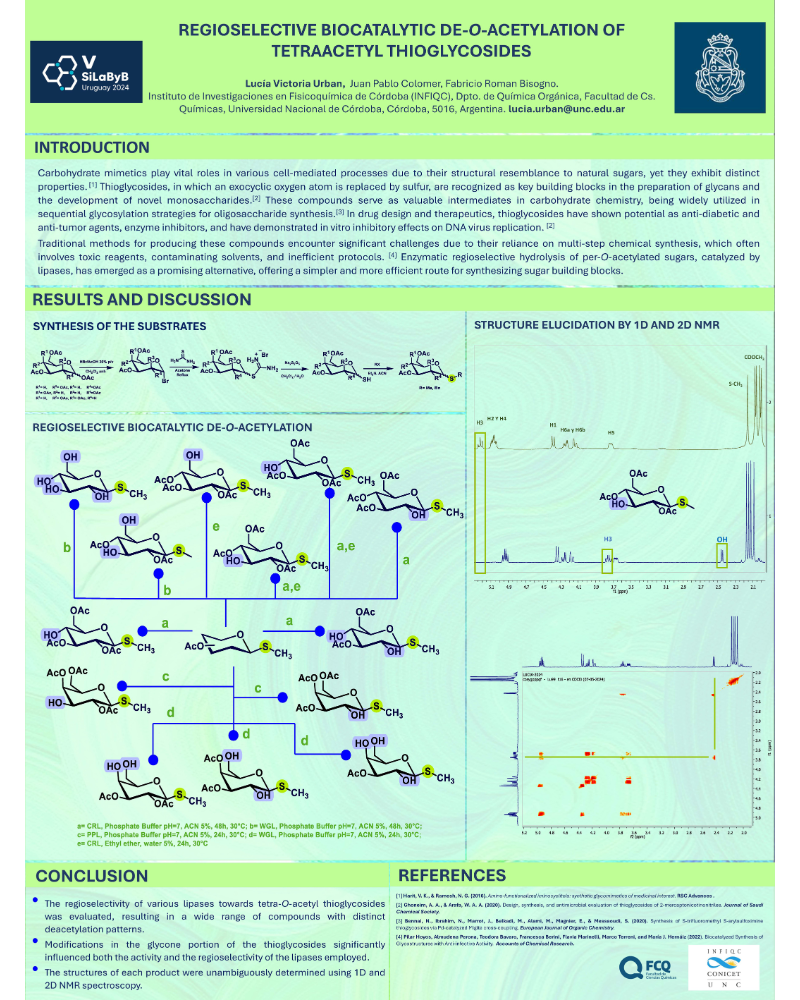
Carbohydrate mimetics play vital roles in various cell-mediated processes due to their structural resemblance to natural sugars, yet they exhibit distinct properties. Thioglycosides, in which an exocyclic oxygen atom is replaced by sulfur, are recognized as key building blocks in the preparation of glycans and the development of novel monosaccharides. These compounds serve as valuable intermediates in carbohydrate chemistry, being widely utilized in sequential glycosylation strategies for oligosaccharide synthesis. In drug design and therapeutics, thioglycosides have shown potential as anti-diabetic and anti-tumor agents, enzyme inhibitors, and have demonstrated in vitro inhibitory effects on DNA virus replication. Traditional methods for producing these compounds encounter significant challenges due to their reliance on multi-step chemical synthesis, which often involves toxic reagents, contaminating solvents, and inefficient protocols. Enzymatic regioselective hydrolysis of per-O-acetylated sugars, catalyzed by lipases, has emerged as a promising alternative, offering a simpler and more efficient route for synthesizing sugar building blocks.
The main alignment of this project with green chemistry principles lies in its focus on creating a less hazardous chemical synthesis. We achieve this by replacing the conventional deacetylation process with an enzymatic alternative, which reduces the use of toxic reagents. Additionally, we prioritize the use of safer solvents, opting for water as the medium. These approaches contribute to reducing waste, increasing sustainability, and ensuring a safer, more environmentally friendly process.